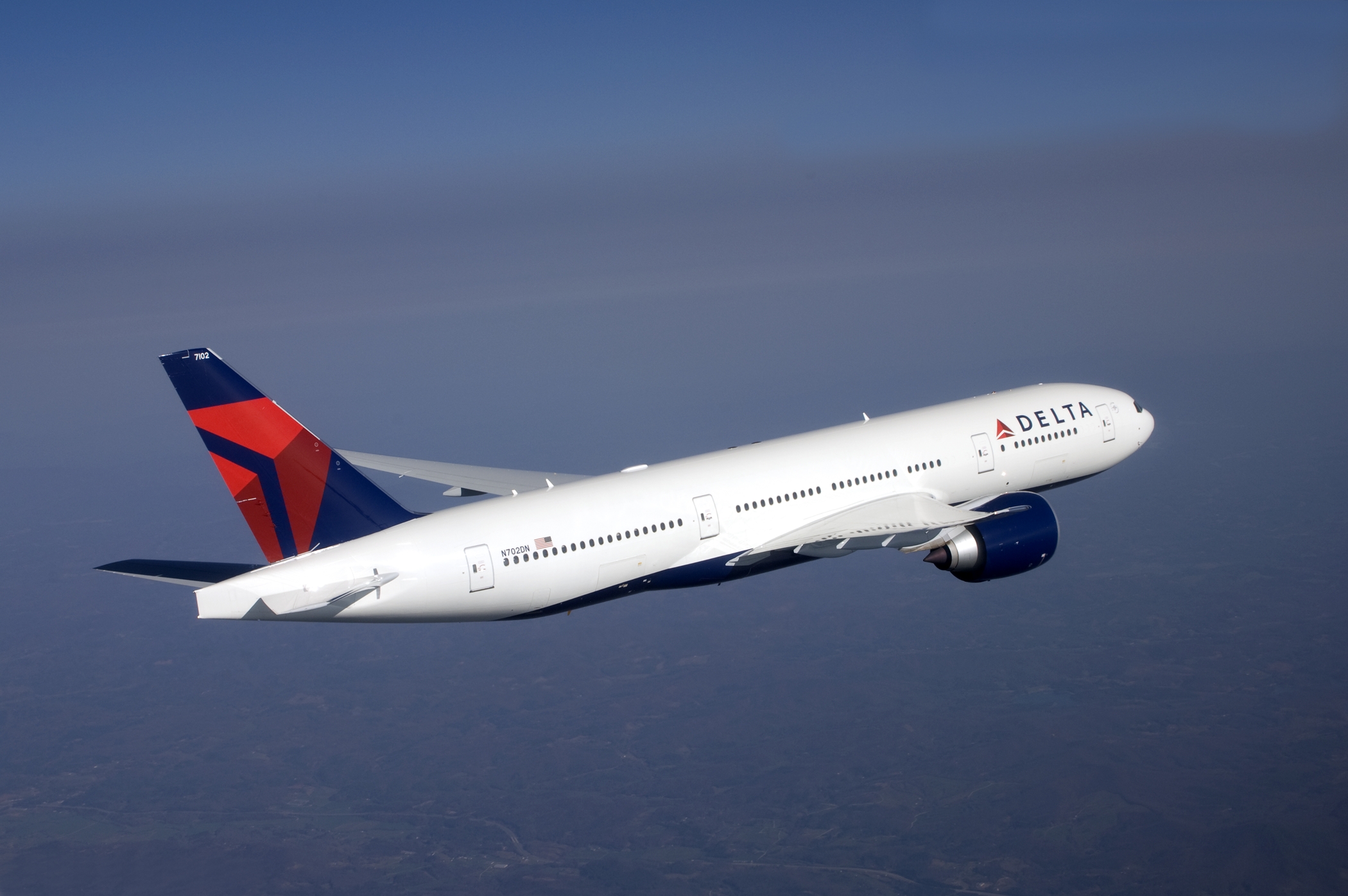
Delta Air Lines surprised us all yesterday by announcing it would retire its Boeing 777 fleet by the end of 2020. Why would Delta retire this iconic long-range aircraft that it only recently retrofitted with new seats?
I’ve outlined five reasons, some stated, some conjecture on my part, to explain this unexpected move.
#1: International Travel Will Return Slowly
This one is obvious enough. With international travel predicted to rebound more slowly than domestic travel, the need for a large fleet of longhaul jets diminishes. In a note to employees, Ed Bastian confirmed:
With international travel expected to return slowly, we’ve also made the difficult decision to permanently retire our Boeing 777 fleet – 18 aircraft – by the end of the year.
With only 18 aircraft in the fleet and a larger capacity, it was easier to retire than Delta’s older 767-300s.
#2: More Fuel Efficient Aircraft Now Have Similar Ranges
Gil West, Delta’s Chief Operating Officer, praised the 777:
“The 777 has been a reliable part of Delta’s success since it joined the fleet in 1999 and because of its unique operating characteristics, opened new non-stop, ultra-long-haul markets that only it could fly at that time.”
Bastian added:
“The 777 has played an important role with Delta since 1999, allowing us to open new long-haul markets and grow our international network as we transformed into a global airline. I’ve flown on that plane often and I love the customer experience it has delivered over the years.”
But note the language. The 777 “allowed” Delta to transform (past tense). It opened new markets that “only it could fly at that time“. But we are now in 2020 and new aircraft like the A330neo and A350 have extended ranges that make the 777 no longer necessary on most routes. These aircraft are also much more fuel efficient (the A350 is 21% more fuel efficient than the 777 according to Delta).
There is one potential exception. Even the A350-900 cannot quite match the 777-200, so there is question over whether the Atlanta – Johannesburg flight will remain (8,439 miles).
#3: With More Airbus A350s Coming, Delta Doesn’t Need 777s
As part of Delta’s new alliance with LATAM, it took over an order for 10 A350-900s. It already has 13 in its fleet with an order for 16 more. So with 26 additional A350s coming, the need for 777s lessened.
> Read More:Delta’s Investment In LATAM Is Pure Genius
#4: A Way To Force Out Senior Pilots Gracefully?
Bastian said:
“Retiring a fleet as iconic as the 777 is not an easy decision – I know it has a direct impact on many of you who fly, crew and service these jets.”
Indeed it does. In fact, this hits senior pilots particularly hard. Could this have been part of the plan? Of course pilots could retrain. But perhaps Delta figured that with retirement approaching for many of these senior staff members, the retirement of the 777 would hasten that goal and free up payroll revenue?
#5: A Way To Write Down Earnings Once Profit Returns?
Who knows when Delta will be profitable again, but what boggles my mind is that Delta just spend millions of dollars retrofitting these aircraft. They now include the latest Delta One (business class) suite, the latest technology, and still maintained 3-3-3 seating in economy class (while most airlines squeeze 10 across).
Could this be a way for Delta to carry forward loss to an even greater extent so that it can report a higher loss (less depreciation) and use these write-offs to offset profits when (if…?) those days return.
CONCLUSION
Obviously, the fourth and fifth reasons are just speculation on my part, but I don’t think they are totally unreasonable conclusions. Certainly, the incoming A350s and reduced demand made retiring the 777 much more palatable. That said, this aircraft will be missed.




Delta flight attendants can fly every aircraft type in their fleet, so this decision will not have much impact on the senior flight attendants.
I think Delta actually owned outright these 777’s. With that they also may see an opportunity to sell them for freight carriers. There was a growing shortage of cargo aircraft that was expected to peak in 2022 and the 777 can be converted fairly easily. I would expect to see them flying somewhere in the world soon instead of being scrapped.
I wonder as well why airlines in the US do not develop a pure cargo division like Lufthansa, LATAM, and many Asian carriers have. It would be a way to save some jobs in a new environment where cargo operations are actually doing quite well. Those 777’s and a few of their aging 767’s would immediately give them a fairly formidable operation with freight.
Very good point that I did not consider.
Cargo resale makes total sense and also means they’ll probably stockpile those new seats for use on existing or future aircraft.
I appreciate the safety of the 777 and the routes that it opened but, as an actual aircraft, I’ve never found it particularly comfortable given how loud it is. But it’s too bad that Delta was one of the last to keep 9-across seating in coach. That being said, especially in coach, I’ll take an A330 or A350 any day over 777 or 787. It looks like 787s will soon be the predominant UA/AA metal out of ORD and I find the cramped economy seating in these to be absolutely miserable.
I wonder if they could sell these retrofit 777’s to LATAM. It would be a cosmetic change of logos and provide LATAM with a massively improved fleet to replace their aging fleet. This could help update LATAM at a cheaper cost than normal, while allowing DL to recoup some of the costs of refurbishing those planes. Granted now is not a great time to make a purchase of planes, but they could do a deferred payment potentially.
With regards to your last point about writing down earnings once profits return – the CARES Act provides a provision with which current Net Operating Losses (NOL) can be carried back to offset prior year year tax gains. Doing so allows them to get an immediate tax credit now (rather than waiting for profits to return), and also allows them to take the deduction at the pre-2018 marginal tax rate of 35%, rather than the current 21% rate – thus saving 14% of the amount of the loss due to tax arbitrage.
Can the A350 handle JFK-JNB easier than ATL-JNB (I know the primary issue is JNB being hot/high, but JFK is a few hundred miles shorter according to GC mapper)? I’ve not heard of shifting the operation, but maybe it would make sense, especially with a SA’s future in doubt?
Really sad to see these 777s go, especially the 9-across config. I’m surprised they wouldn’t just store them for a couple of years, given the investment they just made in them. I honestly wonder if airlines are overreacting to just how long they expect demand to be down… it really depends on how soon countries can figure out how to safely reopen, and how long the ones who contained the disease will keep out ppl from the countries that didn’t
Too bad, seems a bad decision but Delta has always been in love with the 767 since they own so many 757. Same cockpit I’m told. They will replace these with A350 or 787. The anger the CEO of Boeing has created among American carriers my bet is on A350. I’m sure either aircraft manufacturer can do something to get an extra few hundred miles out of either plane. Remember Delta couldn’t wait to get rid of their 747 that they inherited from Northwest either. How is it that no American carrier owns a 747 or an A380 ? They are all cheap and can give less than a shit about passenger comfort, that’s why when lots of people fly international they fly on a Foreign carrier.